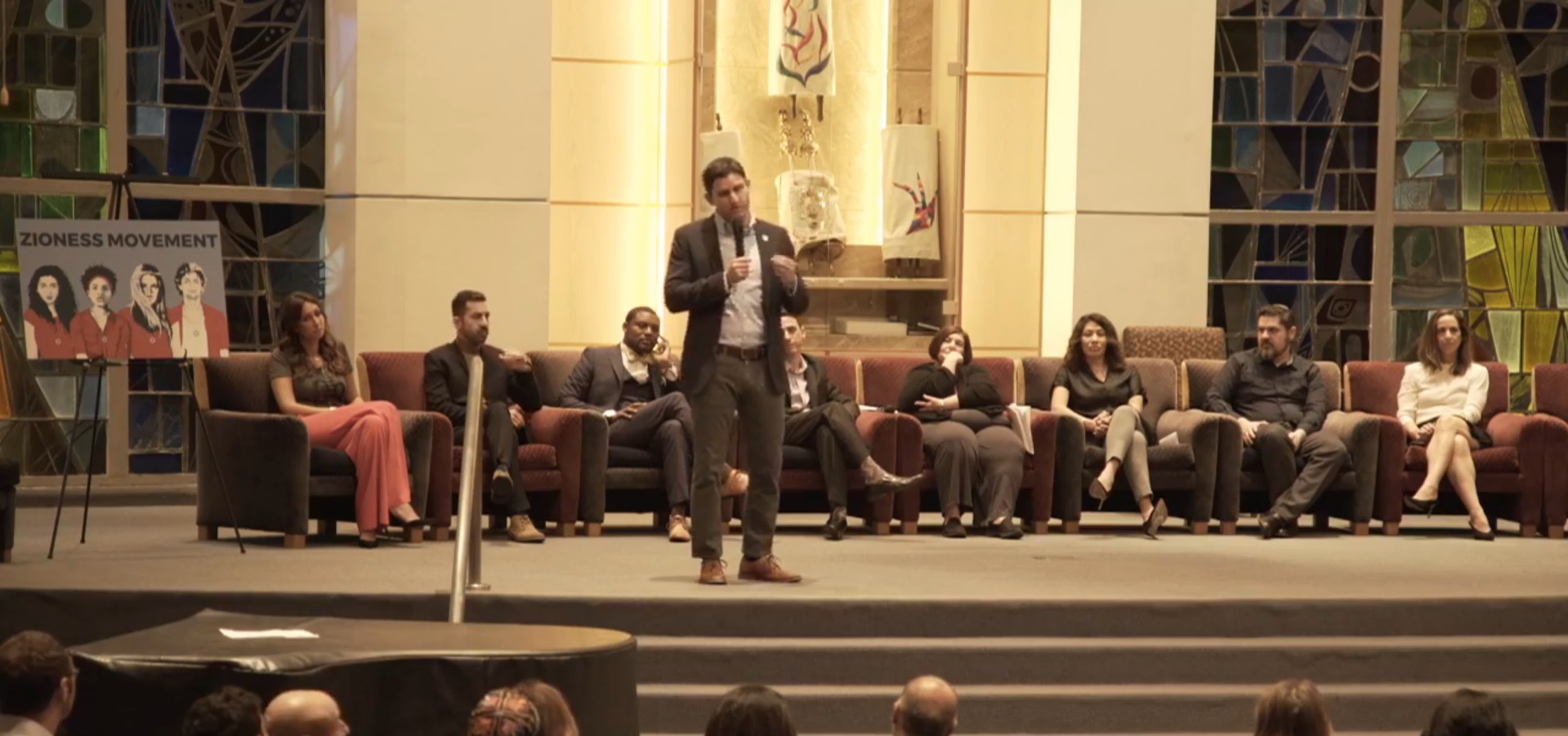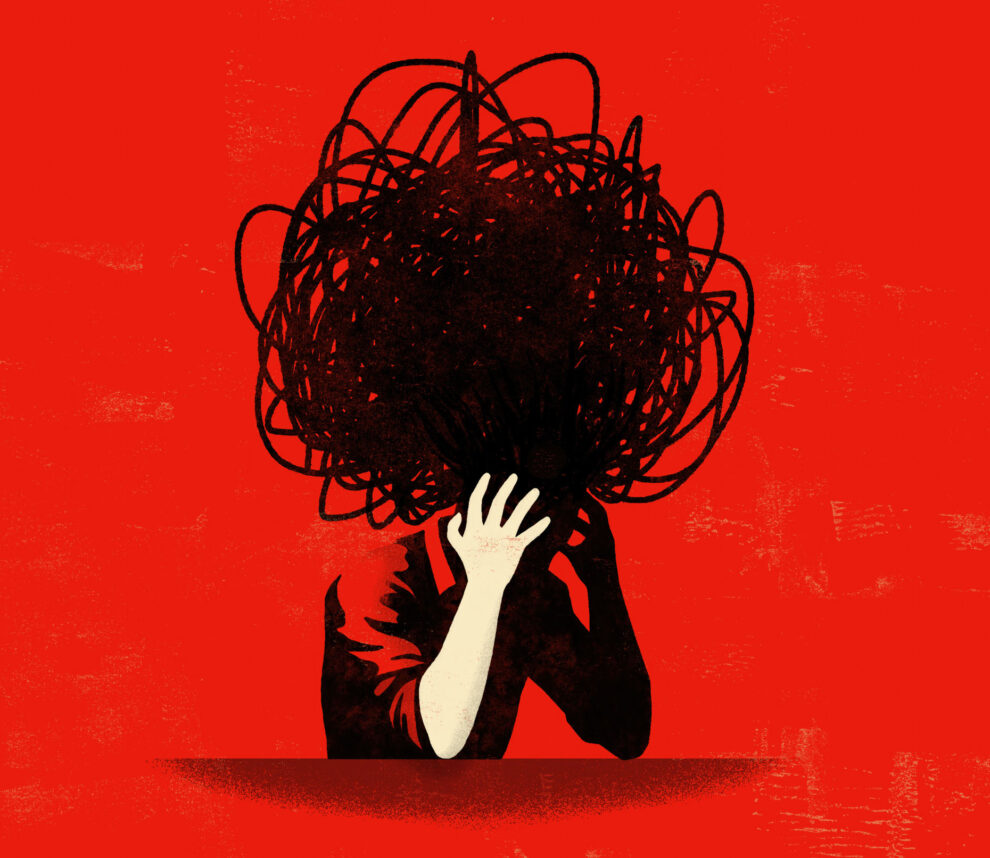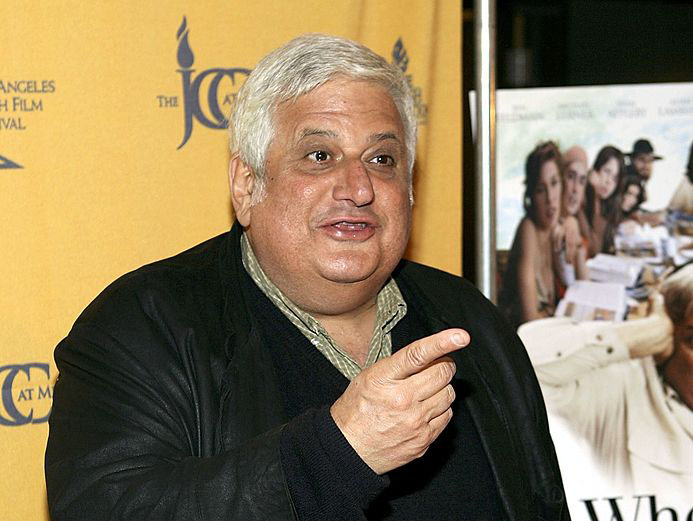 Screenshot from Facebook.
Screenshot from Facebook. The Zioness Movement held a teach-in at University Synagogue on the evening Jan. 13, where a panel discussed the difficulty of being progressive Zionists.
The event started with a speech from Assemblyman Jesse Gabriel (D-Van Nuys), expressing optimism about the Jewish caucus in the California state legislature.
“For as much as conversation as there is about Jews not being welcome in progressive spaces and as much as we’ve all recoiled from what we’ve read about the Women’s March, there’s so much good stuff happening in Sacramento,” Gabriel said, pointing to the Jewish caucus’ work on various progressive causes like immigrant rights and criminal justice reform.
“We are doing this in a way where we are being present and proud of our Jewish values, proud of our support for Israel, proud of who we are and our history as a people, and I think that at this moment in time when folks are trying to push Jews out of progressive spaces, and that is an intentional thing, that our response is not to leave those spaces, but really to double down,” Gabriel said, “and to double down on the work that we’re trying to do, which we know is so consistent with our Jewish values and to be really proud of who we are.”
Arya Marvazy, managing director of JQ (Jewish Queers) International then discussed how he, as a gay Persian Zionist, has dealt with the “anti-Zionist and anti-Israel space” in the LGBTQ community.
“One of the things that they purport is that Israel, as a nation, is using this concept called ‘pinkwashing’ to make the masses feel like Israel is this beacon of light and hope for LGBTQ people… and ignore any hardship the Palestinians might face or ignore the Israel-Palestinian conflict in its entirety,” Marvazy said. “I could talk for a long time how false I believe that narrative to be, and I am surprised that even still today, how present that belief exists in queer communities that I’m a part of.”
Marvazy then recalled when he was at a gay Latino punk club in Downtown Los Angeles and a guy he was talking to outside told him, “Everyone is welcome here, everyone but Trump supporters and Zionists.”
“I just was taken aback,” Marvazy said, adding that he works “on that conversation daily.”
Rabbi Denise Eger of Congregation Kol Ami, a Zioness board member, later said that “at the Women’s Marches there’s been an increasing anti-Semitic rhetoric that we’ve seen that often comes in the guise of anti-Zionism.”
“If you want to protest the policies of the state of Israel, that’s one thing,” Eger said. “But Zionism, when you say that you’re an anti-Zionist, you are bordering on anti-Semitism because Zionism is the national political expression of the ancient longing of the Jewish soul to return to the land of our people, a longing that we have had for thousands of years.”
Eger called on progressive Zionists to “claim our space” at the Women’s March.
“But we also have to stand there proudly as Jews,” Eger said.
Emiliana Guereca, the founder of Women’s March Los Angeles, distanced the local march from the national Women’s March leaders.
“As a Jewish woman, I have seen the rhetoric of Women’s March D.C… and I apologize to everyone and my children,” Guereca said.
She added that her children ask her why she continues to organize despite the rhetoric of the national Women’s March leaders, and what she tells them is she chooses to “confront” it because the “tough conversations need to continue.”
Joanna Mendelson, the Anti-Defamation League’s (ADL) senior investigative researcher at the Center for Extremism, told the audience that 2016-17 saw “the largest single year increase” in anti-Semitism since the ADL started collecting such data and pointed to the Charlottesville riots as a big reason for that.
“The obsession with Jews is part and parcel of white supremacist ideology,” Mendelson said, adding that white supremacists fear “being consumed by a rising tide of color… manipulated by the Jews.”
Mendelson pointed to the social media posts from Tree of Life synagogue shooter Robert Bowers that frequently used the words “Jews,” “k—“ and “immigrants” as an example of this.
She then highlighted Louis Farrakhan’s “most vitriolic and hateful anti-Semitic rhetoric” and lamented his “sizable influence.”
“It is so important that we partner, that we reach out, and that we collaborate on these various issues,” Mendelson said.
Later in the program, Zioness founder Amanda Berman, who moderated the panel, explained that the point of the Zioness Movement is to provide a political home for progressive Zionists who have had their “seats at the table” in the progressive movement “taken away from us.” If progressive Zionists can’t reclaim their seats, then “we will build a new table,” Berman said.
“Even when it’s hard, we have to show up,” Berman said.
Other panelists included Valley Beth Shalom Rabbi Noah Farkas, Jewish Center for Justice founder Rabbi Joel Simonds and McCarty Memorial Church Rev. Eddie Anderson.
The full event can be seen below:
https://www.facebook.com/zionessmovement/videos/238487013744186/






















 More news and opinions than at a Shabbat dinner, right in your inbox.
More news and opinions than at a Shabbat dinner, right in your inbox.